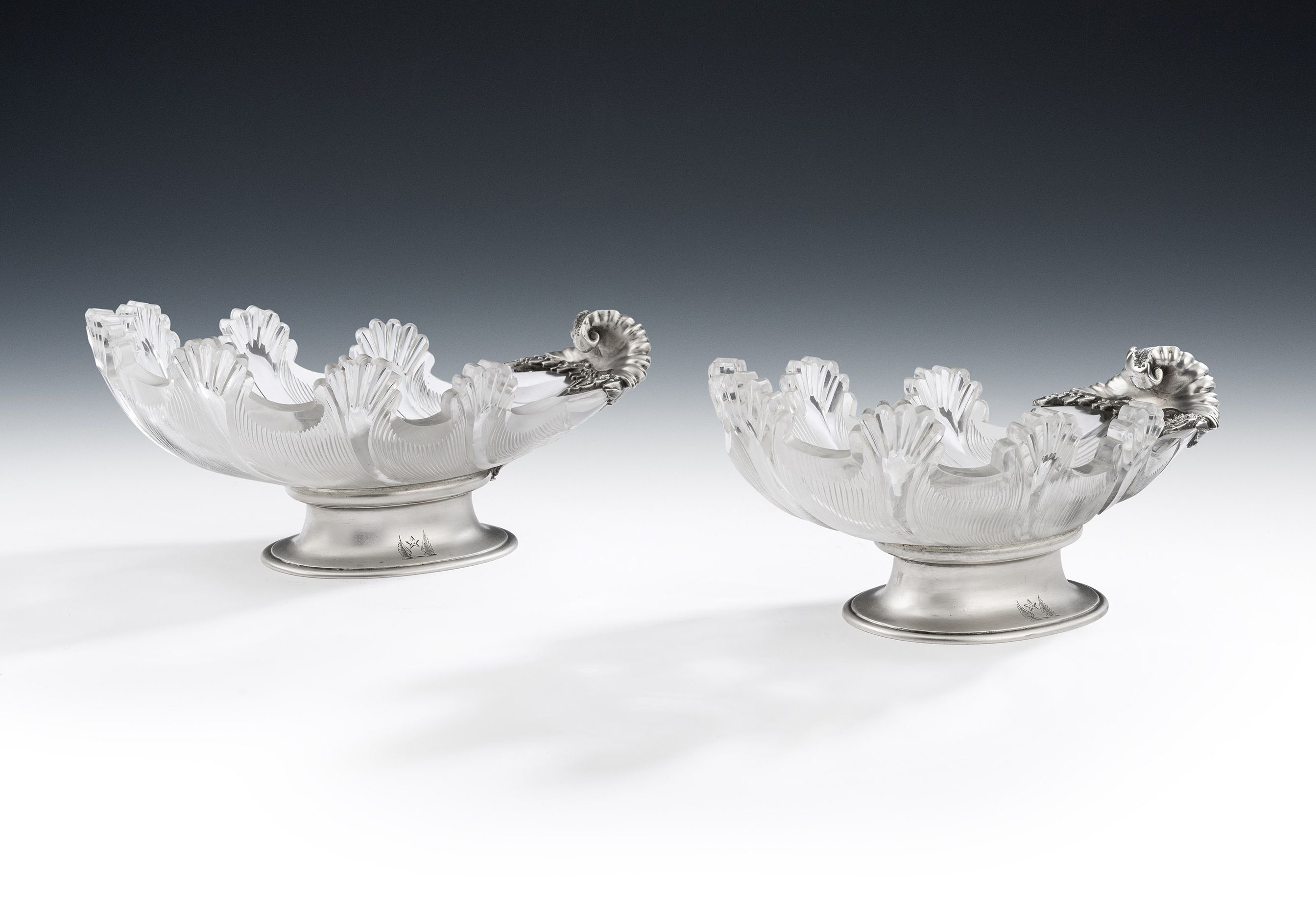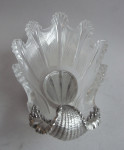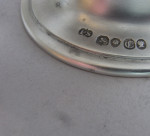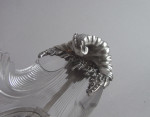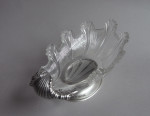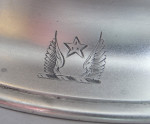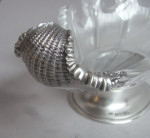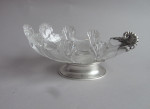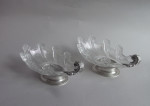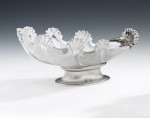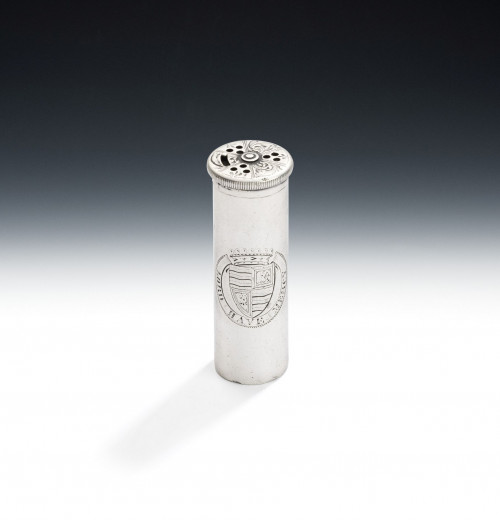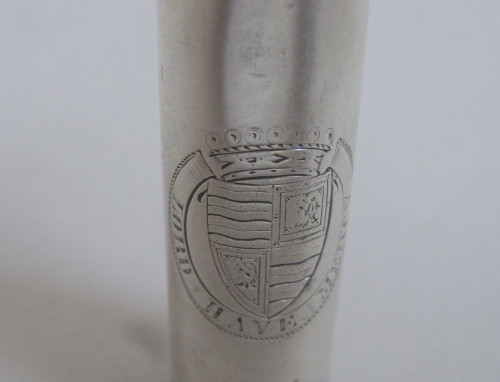- Home
- British Silver Post 1830
- PAUL STORR - A very rare pair of Silver mounted Caviar Dishes made in London in 1838 by Paul Storr.
PAUL STORR - A very rare pair of Silver mounted Caviar Dishes made in London in 1838 by Paul Storr.
PAUL STORR - A very rare pair of Silver mounted Caviar Dishes made in London in 1838 by Paul Storr.
375527
The elongated glass dishes have raised rims which display seven raying shell motifs. Both stand on an oval spreading silver foot, decorated with reeding and engraved with a contemporary Crest. Each end displays a beautifully detailed silver mount modelled and textured to simulate a wave on the sea shore, all giving reference to the fact that these would be used to serve a fruit of the sea. Each is in quite excellent condition and are very well made, as the mounts open up and can be removed for cleaning. The silver mounts and foot are both very well marked. The Crest on the base is that as used by the Baring family.
Caviar Dishes are very rare by Paul Storr and these may well have been a special commission. These pieces represent one of the last pieces made by Paul Storr as they were made in the same year as he retired.
Length: 8 inches, 20 cm.
Width: 5 inches, 12.5 cm.
Height:4 inches, 10cm.
THE BARING FAMILY
The family's earliest known ancestor is Peter Baring (or Petrus Baring), who was a burgher of the city of Groningen, then a semi-independent city-state that was part of the Holy Roman Empire and the Hanseatic League, now part of the Netherlands, around 1500. Peter Baring's son Franz Baring (Franciscus Baringius) became the first Lutheran bishop of Lauenburg in what is now Schleswig-Holstein (then in the Duchy of Saxe-Lauenburg) in Germany from 1565. The current family in Germany and England is descended from Franz Baring. In the Electorate of Hanover, the Baring family belonged to the upper bourgeoisie, the so-called Hübsche Familien (from hübsch, pretty, or good looking), which comprised the third division of the ruling class of the Holy Roman Empire, after the nobility and the clergy.
The English branch of the family is descended from Franz Baring (1657–1697), a professor of theology in Bremen. He was the father of Johann Baring (1697–1748), who moved from his hometown of Bremen to Exeter in England to take up an apprenticeship with a wool-exporter in 1717. Over the years, Johann Baring, who was later also known as John, built a small fortune as a wool merchant. His sons Francis and John Baring moved to London, where in 1762 they founded the John and Francis Baring Company, commonly known as Barings Bank. Barings Bank became one of the leading London merchant banks, until it collapsed in 1995. Francis Baring was the father of Sir Thomas Baring, 2nd Baronet, and grandfather to Francis Baring, 1st Baron Northbrook. He was also father to Alexander Baring, 1st Baron Ashburton, and through his third son Henry Baring the grandfather of Edward Baring, 1st Baron Revelstoke, and Evelyn Baring, 1st Earl of Cromer.
Thank you for your enquiry.
We will get back to you soon.
Please create wishlist to add this item to
RELATED ITEMS


A very rare William IV Castle top Aide Memoire made in Birmingham in 1834 by Joseph Willmore.
£1,950

